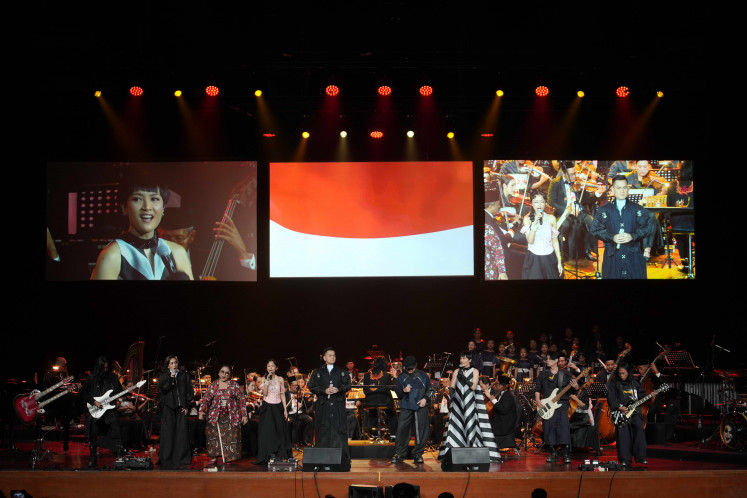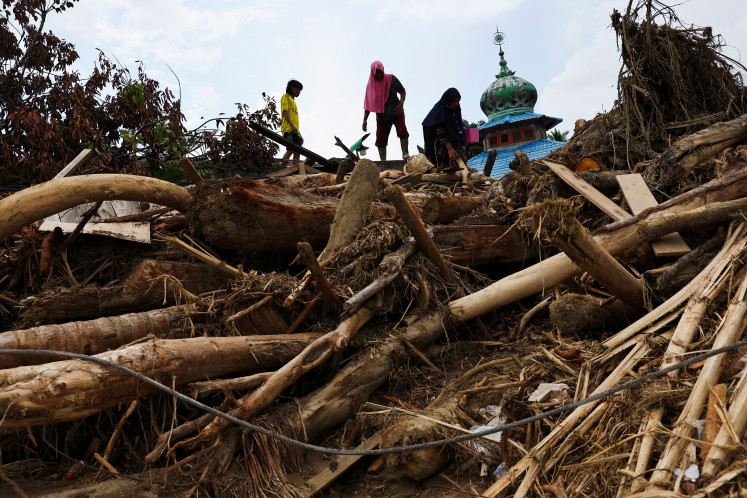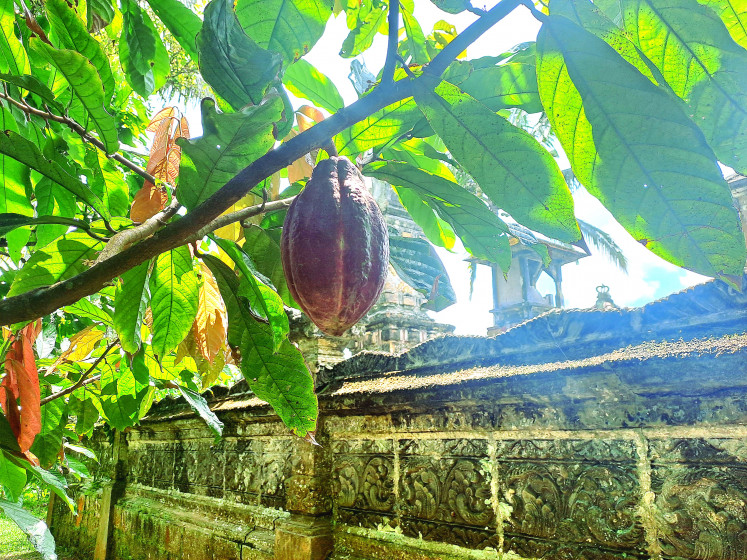Popular Reads
Top Results
Can't find what you're looking for?
View all search resultsPopular Reads
Top Results
Can't find what you're looking for?
View all search resultsDutch heritage red church in Probolinggo
Heritage building: People enter a Dutch-style church with predominantly red walls that local people refer to as Gereja Merah (the Red Church) in Probolinggo, East Java
Change text size
Gift Premium Articles
to Anyone
H
span class="caption">Heritage building: People enter a Dutch-style church with predominantly red walls that local people refer to as Gereja Merah (the Red Church) in Probolinggo, East Java.
In the colonial period, the Dutch government designed urban landscapes in all parts of Java, especially the spatial layout of city centers.
The colonial government designed the urban landscape of Probolinggo in East Java, with its hub of activity located on Jl. Suroyo.
Apart from government buildings, public facilities and factories, Probolinggo also has an imposing Dutch-style church with predominantly red walls that local people refer to as Gereja Merah (the Red Church).
'Its official name is the Immanuel Western Indonesian Protestant Church [GPIB],' said church pastor Meilin Suriani Tapahing, 48.
'Based on historical records, this church was entirely designed in the Netherlands and also had its construction materials directly shipped to Indonesia from that country in 1862,' added Meilin about the 153-year-old corrugated iron house of worship.
The steps leading to the church doors bear the words 'Gebouwd Anno 1862' (built in 1862). Built using the prefabricated system, its roof is supported by a steel frame. 'It took around a year to complete the construction on July 20, 1863,' said Meilin.
Occupying a fairly large area, the building is generally well maintained. The former regional chief's residence beside the church is now the parochial house. Capable of accommodating a 100-member congregation, the church retains its original gothic steeple, doors, windows and bell.
According to Meilin, some worn-out parts have been replaced like floor tiles, lamps and pews. The seats were substituted in the early 1970s to suit Indonesian worshippers' physique. One original seat is still left in the ministers' dressing room. Another rear room keeps historic artifacts like a chalice, a Dutch-language Bible and festival dishes in a glass cabinet.
Meilin said the church walls had originally been white, but in order to prevent corrosion due to Probolinggo's proximity to the sea, they were later painted with red lead, the protective paint used for ships. 'The color red theologically also symbolized the blood of Jesus,' she said.
As the metal walls cause the church to heat up by midday, around 1980 the church management decided to coat the inner walls with plywood to reduce the heat.
Although not the oldest church in Indonesia, the Red Church is unique for having a twin in Holland, making them the only two in the world. 'There are other red churches but they're concrete rather than steel structures,' she said.
Test of time: The church retains its original gothic steeple, doors, windows and bell.
The church also testifies to Indonesia's history having been used as to store weapons during the Japanese occupation, until its transfer by the Dutch government to Indonesia in 1945. The church bell during the Dutch-colonial era served to remind the congregation of church services.
Now the bell is also sounded to celebrate the New Year and Independence Day on Aug. 17, coinciding with a wailing siren. 'Since the church has become part of the nation's history the bell should signal the moment of national independence,' said Meilin, the third woman minister at the Immanuel GPIB of Probolinggo.
As a northern coastal city in East Java, Probolinggo has a diverse cultural background with Javanese, Madurese, Arab, Chinese, Ambonese and Minahasa communities.
Despite its population's Islamic majority, the church has never had any problem. 'A favorable atmosphere has prevailed through tolerance among believers,' she said.
The mother-of-two, who was assigned to the city two-and-a-half years ago, also mentioned the congregation's active participation in the city's social programs and tourist events.
A local churchgoer, Stebby Julionatan, 32, described the city's high tolerance by referring to the relatively safe and normal conditions during the racial rioting in 1998.
The peaceful situation was also linked by Meilin with the history of GPIB. The 'Western Indonesia' in the church's name has nothing to do with any particular Indonesian zone. In 1948, GPIB was founded by people from Timor, Maluku and Minahasa who set up the Protestant church in Jakarta.
Christmas Day has always been a special time for the congregation. 'Most of the students and other people studying and working in other cities will return home for Christmas,' Meilin said. The church has to provide tents and tannoys to accommodate the bigger Christmas congregation.
As an icon of Probolinggo frequented by local and foreign tourists, prior permission is needed to visit the church. Many would-be brides and grooms take their pictures there as one of the spots for their pre-wedding photographs.
'The church was declared a cultural heritage building on Dec. 31, 2014 so we only allow tourists to enter after prior arrangement with the Tourism Office of Probolinggo,' said Meilin.
The minister from Sangir, Talaud, Sulawesi realizes that the heritage status is meant to preserve the building but she feels the lack of government attention. 'We have difficulty obtaining maintenance aid,' she said.
The church management formed a team to compile the church's history 7 years ago,
'We're gathering data from historical records and information from surviving elders,' she added.
John Rondonuwu, a church executive, has proposed that Tourism Office personnel be assigned to the church to enable tourists to visit without having to first apply for permits.












